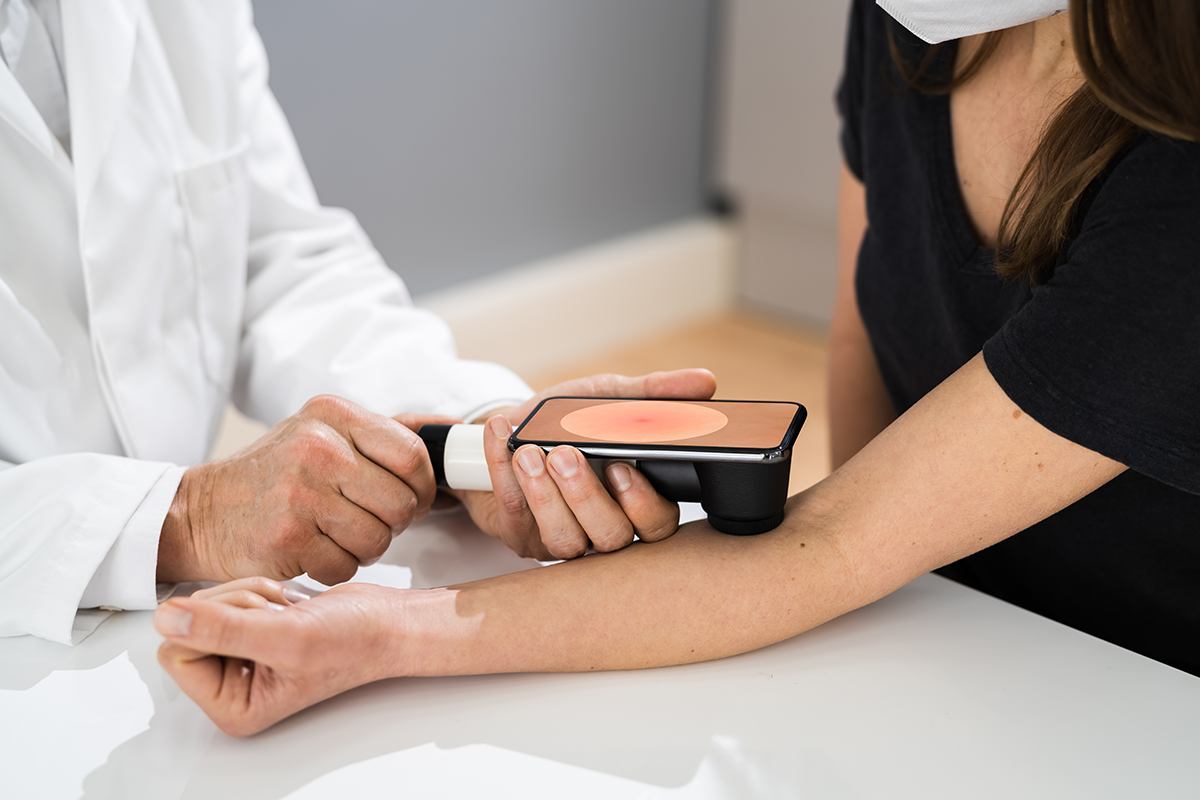
Ongoing Trial: The BAMM2 trial (EA6191) explores adding the drug hydroxychloroquine to standard treatment for certain patients with melanoma that has progressed after immunotherapy
March 24, 2022
Come again? Communicating clearly about risk of recurrence after early-stage breast cancer
March 24, 2022Now Enrolling: The EAQ202 clinical trial seeks to provide young people with cancer a better way to report their experiences during cancer treatment

Nearly 90,000 young people ages 15 to 39 in the United States are diagnosed with cancer each year. The vast majority will survive cancer, though the experience will require them to adapt to wide-ranging challenges related to their physical, emotional, and social well-being. Many will participate in cancer treatment trials. Unfortunately, right now, physicians and care teams do not have adequate survey tools to ask these patients about their experiences.
Many cancer treatment studies conducted by the ECOG-ACRIN Cancer Research Group (ECOG-ACRIN) collect patient-reported outcomes (PROs)1. PROs are any information reported directly by a patient, without interpretation of their response by a doctor or anyone else. This information typically covers areas like the patient’s symptoms, function, or satisfaction with care—and the responses help guide research and care for future patients.
Young people have a variety of health care and quality-of-life needs. Still, existing PRO measurements do not adequately capture these needs during their participation in trials. Surveys may not be specific enough or appropriate for their age group. Questions may be poorly written and difficult to understand. They may describe concepts in culturally bound ways. As a result, the National Cancer Institute (NCI) and Childhood Cancer Data Initiative have issued a call for improvements in health-related quality of life measures for young people.
ECOG-ACRIN’s Adolescent and Young Adult Oncology Subcommittee of the Health Equity Committee is responding to the call with the opening of EAQ202, a pilot study. It will test some exciting new interactive features that ECOG-ACRIN would like to add to the current surveys and questionnaires. The new features will allow patients to choose their PROs of interest. To test if the new PRO tool effectively collects a more extensive range of concerns and priorities, EAQ202 will enroll 400 young participants who a computer will randomly assign to two groups. The first group will use customized tools, and the second group will use standard tools. All participants will complete an initial survey and follow-up questionnaires at 1, 3, 6, and 12 months.
Researchers will also evaluate participant preferences for how their PRO data should be shared, both with themselves and their care team.
Individuals may be eligible for the study if they are between the ages of 18 and 39 and have a confirmed diagnosis of primary cancer of any stage (excluding basal cell skin carcinoma). They must be within 12 weeks of their diagnosis and have received, currently be receiving, or plan to undergo treatment (does not have to be within a clinical trial). Patients must have a good chance of recovery, defined as a life expectancy greater than 24 months. In addition, they must be able to complete questionnaires in English.
This study is led by John Salsman, PhD of Wake Forest School of Medicine.
Learn more about EAQ202 at ecog-acrin.org.
1. ECOG-ACRIN treatment trials use the National Institutes of Health’s Patient-Reported Outcomes Measurement Information System (PROMIS®). Medical research staff at hospitals and cancer centers participating in these trials administer the PROMIS tools to their patients using EASEE-PRO, developed by ECOG-ACRIN experts at Brown University. EASEE-PRO is a user-friendly program that allows trial participants to complete surveys online on any web-enabled device. However, EASEE-PRO does not currently have interactive features that allow patients to choose their questions of interest. This exciting new feature is what the EAQ202 pilot is testing.↩

